A community-owned wallet for the open internet
Tally Ho is a community-owned and operated Web3 wallet, building off the road the early MetaMask team paved for the Ethereum community.
Building an alternative, user-owned stack for Web3
TL;DR: We've assembled a team at Thesis to build Tally Ho: a community-owned & operated Web3 wallet that will end the ConsenSys monopoly on the Ethereum stack. Join us.
If there's one factor that indicates the long-term sustainability of a project in crypto, it's openness. That means openly accessible products, an open and collaborative culture, open ownership and empowering community models, and most of all: open-source code. Any endeavor that falls short of serving these needs will fail in its attempt to build a meaningful, empowered community. And in Web3 products die and communities thrive.
Tally Ho is a community-owned and operated Web3 wallet, building off of what the early MetaMask team paved for the Ethereum community. As entrenched products move toward corporate capture, Tally Ho is an opportunity to deliver a wallet built on openness through its product, culture, code, and community.
Let me explain a little more about what that means.
Open finance
In 2014, PayPal blocked payment processing for my small business. After a number of emails and phone calls, I realized that for these financial gatekeepers, my line of business was considered "too risky." Convincing a processor to take a chance on me would take connections and capital beyond my means.
One door closes, another one opens. Research into payment processing alternatives eventually led me to Bitcoin. After a few days down the rabbit hole, I had prototyped my own payment processor, built on Bitcoin. There were no phone calls, emails, or legal agreements. I didn't have to dress up, drag a comb through my hair, or convince anyone to take a risk on my ideas.
That was my first experience with open finance, and it was empowering.
Now, almost a decade later, as Ethereum starts to deliver on its vision of an open trustless user-owned internet, we're seeing open finance grow up. We can choose from a whole ecosystem of open financial services: trade and provide liquidity on Uniswap, lend and borrow on Aave, manage exposure on Hegic. Though we're calling this latest generation of services "DeFi," decentralization is just a means to an end — open, permissionless finance is a catalyst for the expansive future of user-directed communities, networks, and the social & technical fabric of the internet itself.
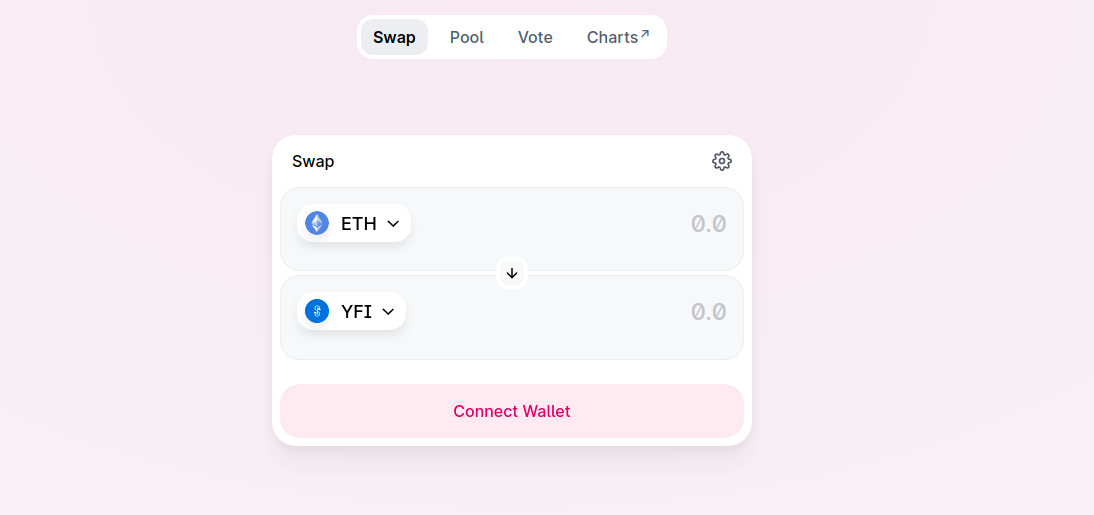
Open culture
Before the advent of Bitcoin, another piece of technology paved the way. BitTorrent brought books, games, music, and movies into the reach of any tech-savvy teenager. At a time when accessing the most popular media online was difficult, torrents made finding, consuming, and remixing culture easy. The rise of P2P file-sharing was never about money — it was about access & participation, curation & collection.
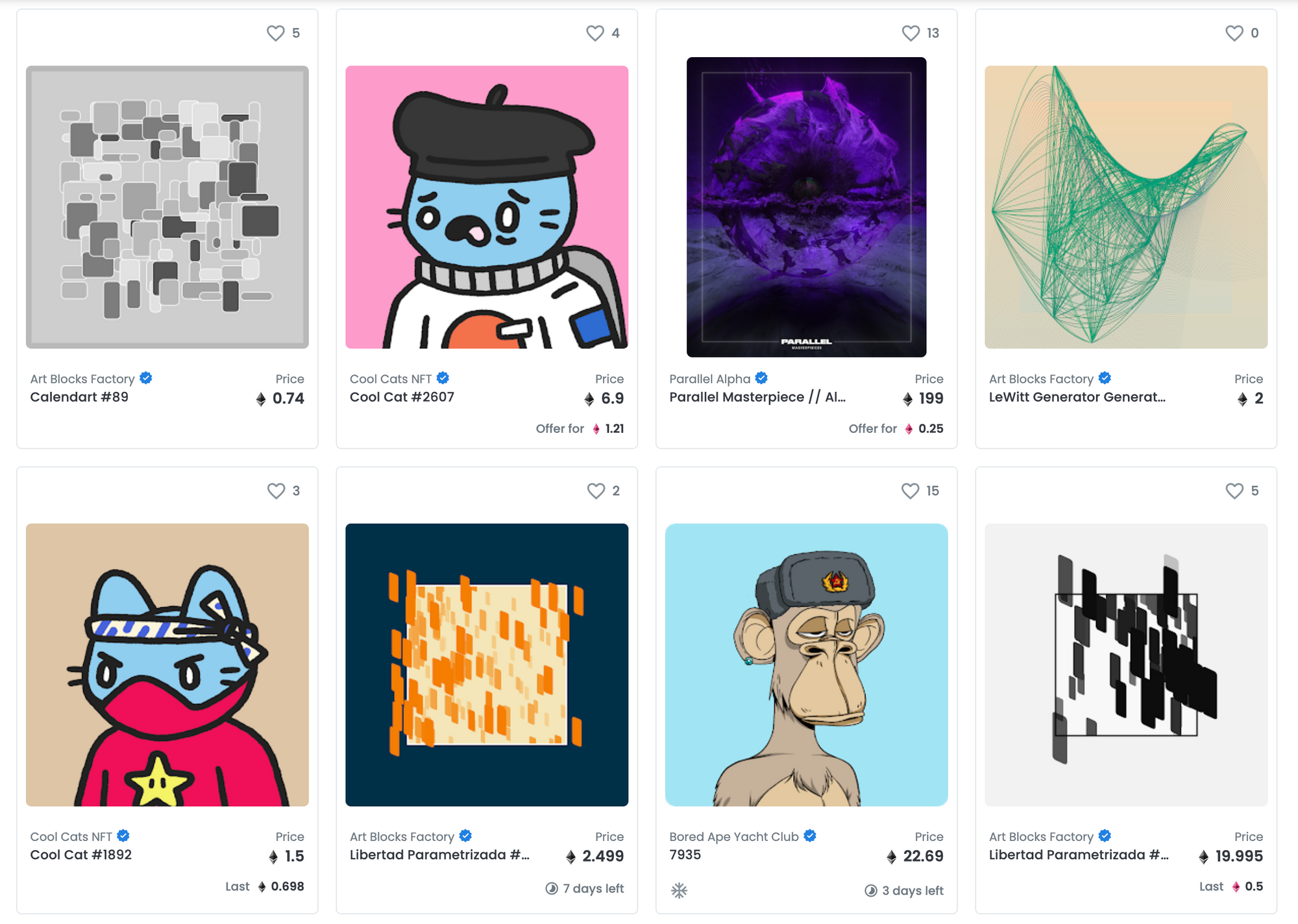
Today, we're seeing a rebirth of remix culture in NFTs. This form of tokenized culture is the spiritual successor of ripping CDs, seeding torrents, and curating your library. The peer-to-peer open market for ideas and culture turns consumption into collaboration and the community into a superorganism. Only now, there's value attached for those who seed culture.
Open source
The predecessor of both of these movements is free and open source software (FOSS). Open source means faster development of new ideas, free education for would-be developers, and stronger security, enabling anyone on the internet with talent and interest to find and report bugs, improve products, and participate in governance.
Open source was once considered fringe. Today, however, the power of open source is undeniable. Linux runs the majority of all phones and servers in the world, git powers most software development, and all major tech companies have policies to support open source software. The decisions made in the earlier days of the internet to make software, standards, protocols, and browsers open source, has brought incredible good into the world and set the stage for everything we do in crypto now.
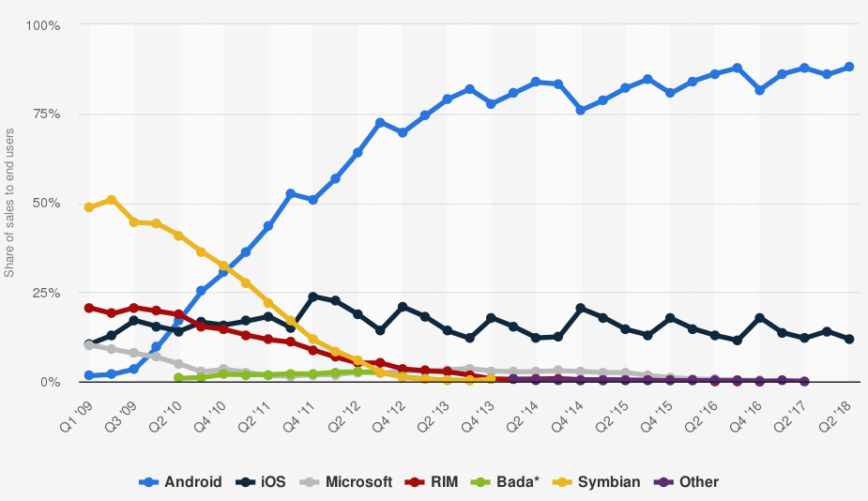
Early open source projects pioneered the template of collaboration that today's decentralized autonomous organizations (DAOs) strive to follow. In many ways, these projects were the first DAOs — strangers around the world coming together to build something, and figuring out how best to govern themselves. It might not surprise you that both Bitcoin and Ethereum are built entirely on open source software.
The internet was built upon these ideals. Along the way, the allure of advertising dollars distracted many of our brightest minds. Any new, open internet must be built on open source. There's no excuse for closing the doors on collaboration.
The ownership economy
From FOSS and P2P tech to Bitcoin and Ethereum, each new movement towards openness has undermined traditional gatekeepers to unlock something greater. The resulting open networks, with their permissionless access and censorship resistance, have consistently led to new waves of innovation and user freedom.
The economic incentives of Web3's open finance accelerate this trend.
In 2020, the fair launch of Yearn's YFI proved incredibly compelling. Radically rewarding early users with real ownership vaulted Yearn into one of the most significant DeFi projects — and perhaps the most significant DeFi community — of 2020.
Tokens turn users into owners. Shared vision and shared ownership make for some of the strongest communities, ever. Every early user, fan, and advocate can be incentivized to grow and maintain their favorite projects. And if they succeed together, they all win.
Two steps forward, one step back
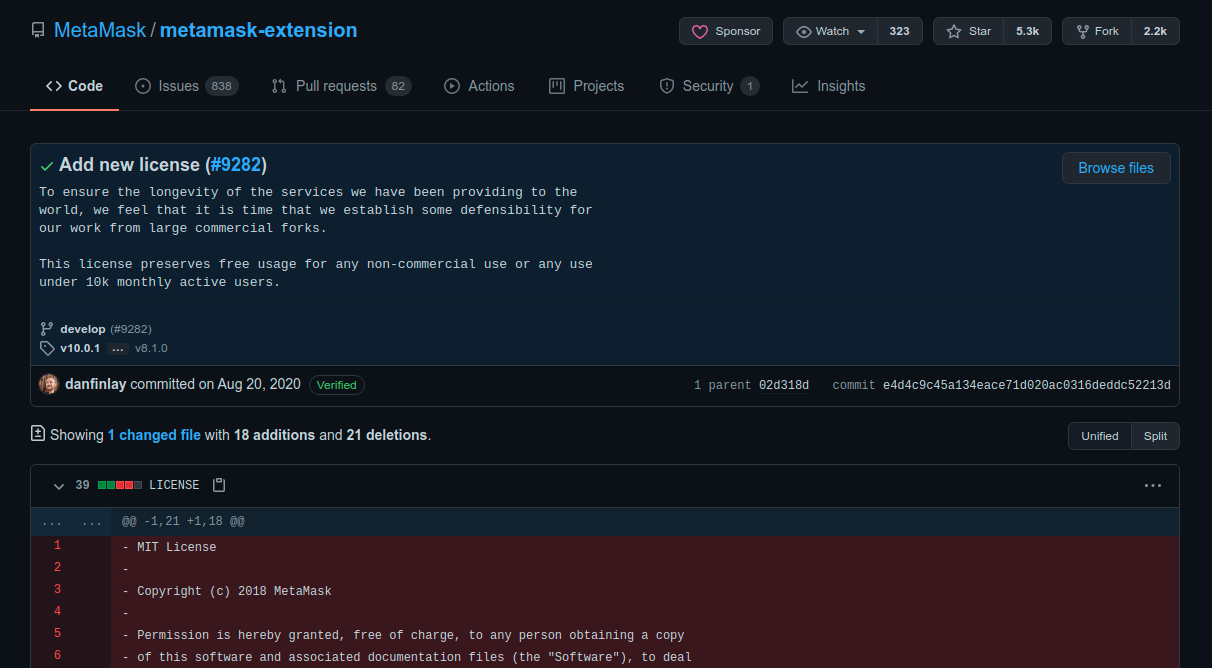
The strength and virtue of these movements is self-evident to many of us. Of course, we want to avoid gatekeepers and squeeze out middlemen; who wouldn't want to own a piece of their favorite app?
Unfortunately, there's been a recent counter-trend against open source in the cryptocurrency space. Projects afraid of forks have resorted to closed source and restrictive licenses — to the detriment of their users.
MetaMask — many users' first introduction to Web3 — made this fundamental mistake. This Friday, August 20th, marks the 1-year anniversary of the team's decision to abandon free and open source software.
Why? It appears that they were afraid of in-roads in the wallet space made by the Brave team.
A month later, ConsenSys launched Metamask Swap, an in-wallet trading service.
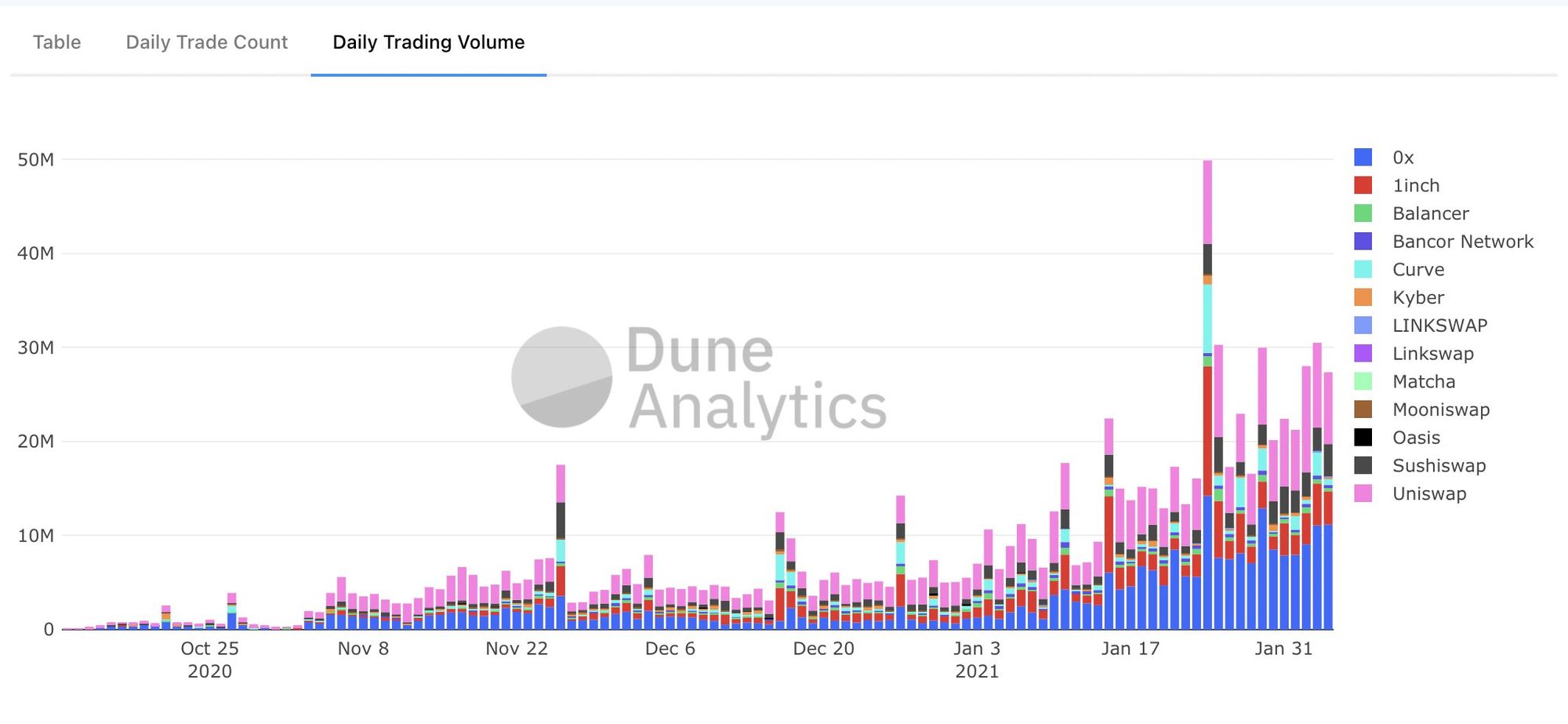
They charge an enormous fee versus Uniswap, Sushiswap, 0x, or 1inch — as high as 1% per trade. And unlike each of those platforms, the $10M in fees they earn each month don't go to users, instead going directly to a tightly held corporation.
Despite years of community advocacy, Metamask's users aren't making a dime.
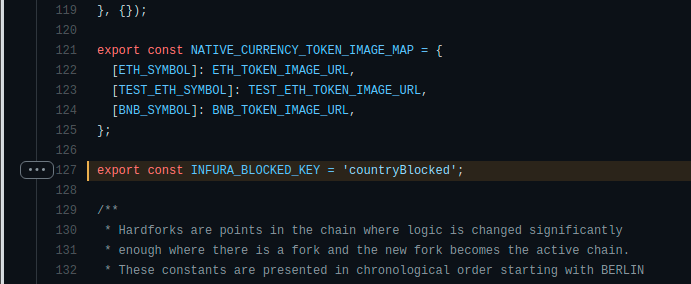
The latest release includes a number of choices at odds with what's best for users, including blocking wallet access by country and increasing user surveillance.
These product choices are standard in the world of Web2. In Web3, we can do better.
Okay, so... what is Tally Ho?
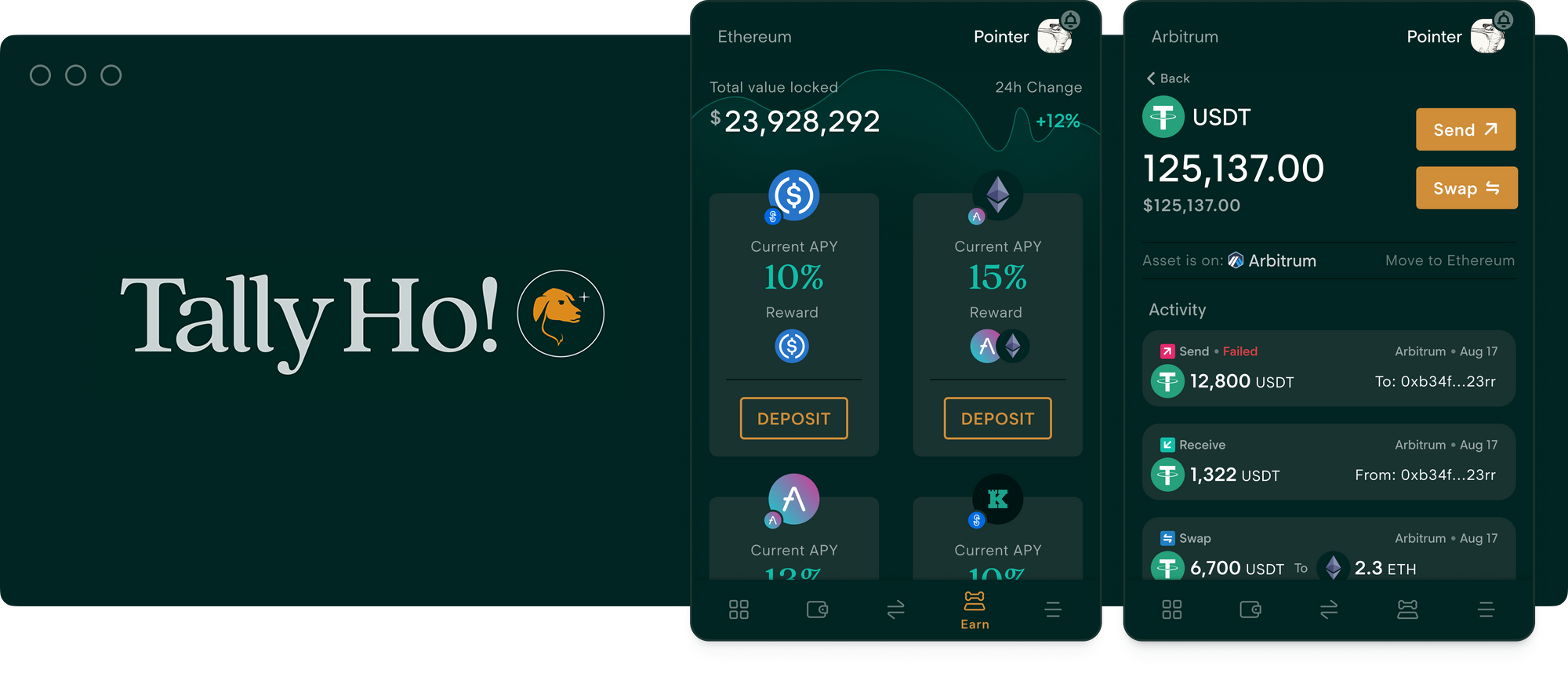
Tally Ho is a community-owned and operated Web3 wallet.
The initial release will realize our efforts to build a wallet that is...
- Fairly launched ⚖️
- Sustainably aligned with users 🤲
- Wholly owned by the community 👪
The first wallet release will focus on open finance and will work its way across today's DeFi ecosystem. Anywhere you can use MetaMask today to farm, swap, lend, and borrow, you'll be able to use Tally Ho. Tally Ho's launch will also open up a number of new yield opportunities, integrating tightly with Yearn and other aggregators to make passive yield as simple as a traditional savings account.
Instead of enriching a select few, all fees generated by the wallet will go to users, bootstrapping a robust community.
I believe we're building the wallet the open internet deserves. To me, that means:
- Access over privilege.
- Open source over restrictive licensing.
- Community control over centralized profiteering.
To do that, we need you. Join the Discord, and be ready to share:
- What don't you like about today's Web3 wallets?
- What features are you missing?
- How can we make open finance easier today?
If this is something that gets you excited, join us as part of the founding community on Discord, follow along on Twitter, or come work with us at Thesis.
Let's build together.

